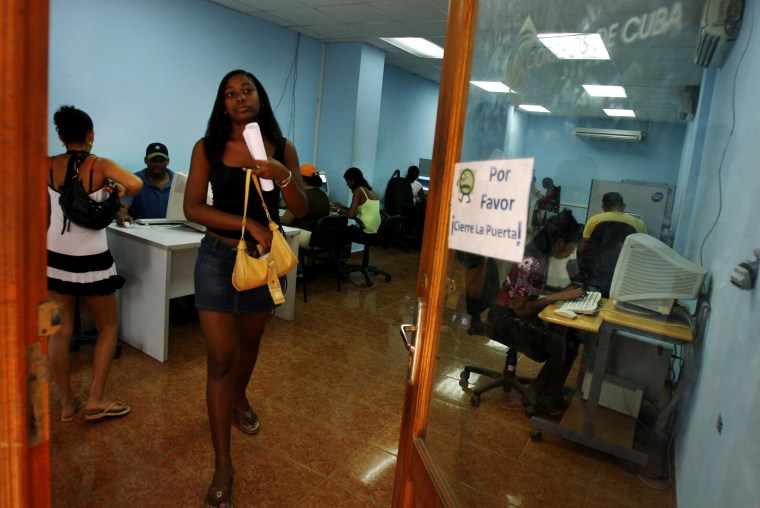Cuba has temporarily reduced the hourly charge for using state-run Internet cafes in the country's first small but substantive public move to increase online access since the declaration of detente with the U.S.
President Barack Obama said late last year that Cuba had promised to increase Internet access, although U.S. and Cuban officials have since provided few specifics.
Virtually all home connections remain illegal in Cuba and getting online at government centers remains prohibitively expensive. Post-discount, an hour costs roughly 10 percent of the average monthly salary of $20.
Users nonetheless hailed the decision to cut the rate by 50 percent until April 10. State centers previously charged $4.50 an hour. The promotion gives Cubans two hours and 16 minutes for $5.
"The cut is something that's really positive," said Dimas Bencomo, an artist who goes nearly every day to one of the 155 cyber-cafes opened in 2013. "They should be charging even less and it would be much better to have a connection in my house."
Cuba announced last month that it plans to open an additional 136 Internet centers around the country this year.
The price doesn't appear to have changed in hotels, which charge $8 an hour.
The price cut that began Feb. 10 has received virtually no publicity in state media and news of it spread by word of mouth. It doesn't appear to have dramatically increased demand at state cyber-centers.
The Cuban government blames the island's lack of connectivity on technical limits resulting from the U.S. trade embargo on Cuba.
Independent experts point out that Cuba is connected to Venezuela by a high-speed fiber-optic cable and blame the lack of access on the government's underfunding of telecommunications infrastructure and its fear of the Internet as a tool for social change.
